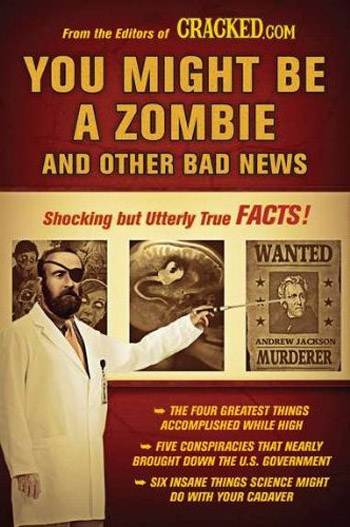My Hall of Fame Season
 Rob Dean On
Rob Dean On  Wednesday, January 6, 2010 at 12:00PM
Wednesday, January 6, 2010 at 12:00PM I peaked in sixth grade. More precisely, I peaked athletically in the summer following sixth grade. Well, perhaps peaked is the wrong word, as it implies that there was a steady improvement in my skill set. Let’s just say that my athletic skills inexplicably spiked in the summer following sixth grade.
As previously mentioned, sports are not my strong suit. My asthma put the kibosh on most running activities, relegating me to the role of embarrassed spectator in many a gym class. My coordination wasn’t really evident—appearing less like a controlled movement of an athlete than the controlled spasms of an epileptic whenever any ball came my way.
 That's not even close to me...I never wore glasses! (From The Decemberists' album, "Picaresque)
That's not even close to me...I never wore glasses! (From The Decemberists' album, "Picaresque)
My skills were non-existent and I was immediately branded as an outsider to the majority of my fellow male classmates. I became an “indoor kid,” the kind that gets cheered for just finishing the race in a way that was meant to boost self esteem but really just highlighted my pathetic nature to the predators in my class.
And so it always was, throughout my life. Hell, even in college I embarrassed myself in the position of right field on our intramural softball team. Such efforts and records do not reflect well upon my manliness. I’m more adept at comparing the various incarnations of Star Trek than I am talking about the different defensive lines in the AFC East. I like sports, particularly football and boxing, but I’m just incapable of following them with the earnestness that most males seem to possess in their biological make-up. Which is an odd conundrum given my proclivity for remembering facts and near-meaningless trivia. If only I could use this power in a socially acceptable way, like rattling off baseball stats or debating the merits of Parcells versus Belichik. Instead I use my “gift” to ruminate upon which Weezer album is the best (The Blue Album narrowly beats out Pinkerton) and how many episodes of Futurama featured Al Gore’s voice (3—including the direct to DVD movie).
So the wide world of sports and I have never been “simpatico”, except for one glorious moment—the summer following my sixth grade. That summer, as for many summers before and a few afterwards, I was enrolled in youth soccer league. Prior to this, my career in little league soccer had been a collection of asthma attacks ruining my “hustle,” poorly aimed passes, and frustrated attempts at not embarrassing my family. And just the previous year, I had suffered one of my more humiliating experiences when my little league baseball coach announced to me and the whole team that my glove was a “little girl’s glove.” My reaction to that was my standard response of crying and never returning to face those people ever again.
But something changed in the summer of sixth grade. Maybe it had been my latest mishap in gym class earlier, when I suffered a contusion playing goalie in our indoor soccer games, which spurred me to improve. Or perhaps it was a sudden burst of testosterone in my system that gave me a bit of a push. Whatever the reason, I became good. On defense, I stripped away the feeble cloak of the uncouth asthmatic, and became a boy capable of showing some hustle and able to sprint up and down the pitch. I knew where the other team was going and was able to cut them off. My team could depend on me not just to stuff my face with orange slices on the sideline while talking about comics with my fellow non-athletes. My coaches were screaming encouraging praise at me, instead of simply screaming to God to please grant the lanky asthmatic with some semblance of skill.
I considered myself the “thinking man’s defender” of suburban youth soccer. I would learn all of the names of the opposing team members and talk to them while I tried to steal the ball, or would call out to them to pass the ball to me (shockingly enough, this actually worked—although I felt a sense of betrayal as I knew that it probably worked only on my fellow bumbling nerds who had been pressured to participate in “something, anything” by their parents). I saw myself as the Tim Duncan of youth soccer league, the workhorse who used an amalgamation of psychology and precision in defending his team.
We performed quite well that year, and went to the state championships (we’d be knocked out in the first round). However, before we entered the championships we had a team barbeque complete with an awards ceremony where the coach would give us tiny trophies for our accomplishments. When it came time to announce “best defensive player,” all of my teammates said my name as if it was a guaranteed moment. But the name the coach read out, “Simon Halpern,” was strangely not my own. Luckily, I didn’t do the unfortunate awards show mistake of standing up before the name was spoken in a display of pathetic self-assurance. Instead I cribbed another bit from awards shows, the giant fake smile and loud applause—you know, to show that it didn’t bother me and that, indeed, the best man had won.
Even though the coach confided in me that I was a great player but they felt Simon was more consistent, I knew that it was the perfect ending to my moment in the athletic sun. Even when others congratulated me and informed me that I was fitting in and doing well, there was a moment which positively defined me as “less than” another. After that, my skills were in a steep decline, and my interest in the sport evaporated when I didn’t make the school soccer team in eighth grade. I lost that spot to a kid who, just weeks earlier, had smoked oregano thinking it was marijuana. That kind of stung.
While it’s embarrassing that I was only good at sports once in my life, I don’t look back on it entirely with shame. There is something very satisfying when you are able to point to a specific time and place and know that you did well. Maybe the rest of your life was crap, but at that one moment in time, you were actually fairly decent. Perhaps all of my inept attempts and pathetic entries on to the field of play before and after have been nothing more than mere prelude and epilogue to that one summer when I felt normal.











Reader Comments